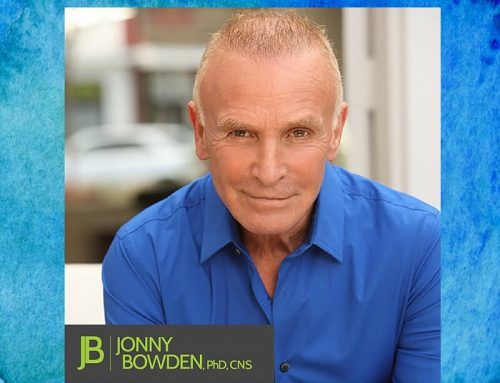As I watched the first ever episode of “The Biggest Loser” back in 2004, I remember one question popping immediately into my head:
Who’s going to turn out to be the real biggest loser here … the contestants? Or the audience?
Well, it’s 12 years later and the answer is clear: It’s both.
Let me explain.
Weight loss as a spectator sport is a bad idea. It sets up expectations that are wholly divorced from reality. (“Man I only lost three pounds in two weeks and this dude on TV lost 17 pounds in one week!”) Not only is this “result” neither possible nor desirable in any realistic scenario, but it’s positively unhealthy and—as we shall soon see—utterly counterproductive.
Weight loss as entertainment relies on techniques—the boot camp exercise, the hours of running, the starvation diets– that are abominably, horrifically, fundamentally stupid, backed by not a shred of science, and are completely unsustainable. Yet watching people do this shit is entertaining enough to make you forget how dangerous it is.
So now, away from the teary, staged-for-television finales, and the “inspiring” stories of the winners, we have some actual numbers, some real science. Researchers followed “Biggest Loser” contestants for six years after their win , and for the first time, we have actual data on what happens to folks after losing a ton of weight through intensive dieting and exercise.
It’s not a pretty picture.
Thirteen of the fourteen contestants studied regained weight during the six years after the show. Four of them are heavier now than before they went on “The Biggest Loser”.
But that’s not the bad part.
The bad part is that nearly all of them have measurably slower metabolisms than they did six years earlier. That means they burn fewer calories than would be predicted for a person of their weight (more on that in a moment).
Only one of the contestants—Erinn Egbert—weighs less today than six years ago. And she requires 552 fewer calories a day to maintain that weight than she would have required if she had never gained and lost all that weight in the first place.
In other words, her metabolism slowed down.
Yes, that dreaded “slow metabolism” that people constantly complain about to personal trainers (often incorrectly) is a real, measurable phenomenon. It’s something that people in the weight loss field have been observing clinically for a long time, but that the “Biggest Loser” study demonstrates for the first time with hard data: A large amount of weight loss—especially when it’s done quickly– slows the metabolism. Folks require fewer calories to maintain their new, post TV-show, weight than someone who was that weight to begin with.
Sorry. Don’t kill the messenger.
Let’s use round, even numbers that in no way are accurate, but will make the point clearly. Let’s say you’re a healthy, never-overweight 150 pound person and you need 2000 calories to maintain that weight on a daily basis. At 2000 you won’t lose, you won’t gain, everything is hunky-dory.
Now, over the years, you somehow balloon up to 325 and you go on the Biggest Loser and, miracle of miracles, you get your weight back down to your ideal, college weight of 150.
So, you logically figure, you can go back to eating “normally”, which, for you, means that 2000 calorie a day diet that kept you where you wanted to be.
Not so fast. To maintain that 150, you no longer need 2000 calories a day.
You now need only 1500.
And if you eat the 2000 that kept you perfectly healthy and fit pre-obesity, you will get fat again, even though you’re only eating what you used to eat before you became obese.
For a real-life example, take Pastor Sean Algaier. His starting weight on season 8 of the Biggest Loser was 444, and he dropped 155 pounds on the show. Now, six years later, he’s up to 450, 6 pounds higher than when he started. More importantly, he now needs a staggering 458 calories less to maintain that weight than he did before he went on the show.
And yes, that’s supremely unfair. But there it is.
A symphony of hormones—leptin, ghrelin, insulin, cortisol, adiponectin, and others—work fervently to get your body back to the weight it “thinks” you should be. That hormonal army is a powerful adversary—willpower doesn’t have a chance, at least not in the long run.
Not only that, but new research on the microbiome shows clearly that the non-human microbes in your gut (which outnumber human cells by 3-10x) have a profound and dramatic effect on what happens to the calories you ingest.
You know how there are folks who can eat anything and never gain an ounce, but you just look at Cherry Garcia and your hips grow an inch? The microbiome may be partly to blame.
One class of microbes called firmicutes will stash practically every molecule of food you eat into the fat cells; another class of microbes called bacteroidetes has the opposite effect, burning up those calories almost as fast as you can ingest them.
And we’re only now beginning to realize the effect of pesticides, environmental toxins, hormones, endocrine disrupters and… don’t get me started… GMO foods, on obesity.
So the real victims in this story are the contestants—who lost a bunch of weight but gained it back with a slower metabolism to boot—and the audience—who learned a bunch of really stupid lessons about weight loss.
Weight loss—despite what every health organization from the terrible American Dietetic Association to the American Medical Association tells us—is not– repeat NOT– just about exercise and diet. Obese people aren’t unmotivated, slovenly, gluttony people with no discipline. They suffer from a hugely complex metabolic dysregulation. Continuing to pretend that weight loss is as simple as cutting calories and going for a walk is the public health policy equivalent of medical malpractice.
So does this mean we should all just throw up our hands and give up on weight loss? Hell, no.
But an enemy better understood is an enemy more likely to be defeated. If obesity is our enemy, we better stop telling ourselves a bunch of lies about how easy weight loss is.
And…
… it wouldn’t hurt if we also thought a bit about why we want to lose weight in the first place.
Most of us want to lose weight so we can be more:
happy
attractive
healthy
energetic
sexy
But if I’ve learned one thing in 25 years of doing this, it’s that we don’t really have to have the perfect body to have every one of the things on that list.
See, I don’t believe everyone on earth can be thin.
And most important, I don’t think it matters.
Gorgeous, sexy, inspiring, energetic people come in every conceivable size. And while I don’t believe a six-pack is within reach of everyone, I do believe that everyone— at any weight— can be a better, more energetic, more sexy version of who they are now.
And that while we’re figuring out this obesity thing—and believe me, we’re not even close to fully understanding it—it might be a good idea to work on having the things RIGHT NOW that you think you can only have “someday, once I’ve lost the weight”.
Because there are a lot of benefits in cutting carbs, eating healthy fat, and exercising intelligently—and most of those benefits have very little to do with your waistline.
And maybe if we stopped making it be “all about the weight”, and instead started looking at metrics like energy, sexuality, sleep, performance, attitude, optimism and well-being, we’d be a whole lot better off.
No matter what size we happen to be.
[/vc_column_text][/vc_column][/vc_row]












I was with you until the slur about President-Elect Trump – I visit this site for health information not your opinion on politics – you “Hollywood types” would do well to realize what us “deplorables” are capable of doing – might your business be the next to suffer because you felt the need to interject your political opinion in an article on weight lose. Yes, this is your site – but do a header at the top of your page for politics – that way if I’m interested in your opinion I can click and read – very disappointed in you. Don’t get me started on how O’Bama had ruined my life. Maybe what is a calamity for you is a prayer answered for me….
Fan or not, at least spell President Obama’s name correctly!
This was a great article with many good points. The Trump comment was funny (regardless of what end of the political spectrum one is on) We should be able to laugh at ourselves in a healthy way
Great post. I’m facing a couple of these issues.
This is a subject close to my heart cheers. Thanks
Fantastic Blog. Really enjoyed reading.